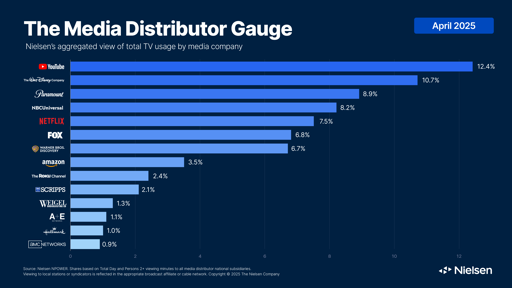Operation Narnia: Iran’s nuclear scientists reportedly killed simultaneously using special weapon
-
The nuclear scientists were killed using a special weapon whose details were barred from publication, Channel 12 says.
The 10th nuclear scientist was killed shortly after the other nine, as part of the overnight Thursday-Friday Israeli operation, which included strikes on Iran’s ballistic missile program and the Natanz nuclear site, along with the elimination of top members of the Islamic Republic’s military leadership, the network says.
The nuclear scientists were all killed while they were sleeping in their beds, with Israel deciding to carry out the assassinations simultaneously so that there wouldn’t be time to tip off those being targeted.
The scientists apparently believed they were safe from such targeting in their homes, a senior Israeli official tells Channel 12, noting that previously assassinated nuclear scientists were killed while heading to their cars after work.
Israel had been tracking Iranian nuclear scientists for years and the ten killed last week were marked for assassination in November of last year, Channel 12 says.
Just when I feel like dystopian news can't really disturb me anymore...
Leaving this totally unrelated article about Palantir and Israel here for absolutely no reason at all...
How Israel Uses AI in Gaza—And What It Might Mean for the Future of Warfare:
A program known as “The Gospel” generates suggestions for buildings and structures militants may be operating in. “Lavender” is programmed to identify suspected members of Hamas and other armed groups for assassination, from commanders all the way down to foot soldiers. “Where’s Daddy?” reportedly follows their movements by tracking their phones in order to target them—often to their homes, where their presence is regarded as confirmation of their identity. The air strike that follows might kill everyone in the target's family, if not everyone in the apartment building.
Abraham, whose report relies on conversations with six Israeli intelligence officers with first-hand experience in Gaza operations after Oct. 7, quoted targeting officers as saying they found themselves deferring to the Lavender program, despite knowing that it produces incorrect targeting suggestions in roughly 10% of cases.
Literally rip BOZO
-
How can people be so fucking stupid as to keep their key personnel vulnerable like that?
I mean it hadn't happened before so it is understandable
-
What is to stop the ultra wealthy from simply each making a million of these AI commanded drones, and just...killing all the poor? ALL of them? ALL OF US?!
Are you just like that by default or are you just missing your daily pills?
Maybe stop projecting your inner traumas towards the world, and get help. Can't be possible to live a healthy life with that mindset
-
- Why is it ok for them to assassinate civilians?
Why not?
Daily on Lemmy there are thousands of calls to murder X or Y person who doesn't agree with collectivist ideology.
Why would it be different for them?
-
I mean it hadn't happened before so it is understandable
Hey don't worry about Mossad and the USA, just close your curtains tonight in the house you've lived in for 40 years. You'll be fine.
-
Logging, fishing, hunters, steel, mining and roofing workers are the most high risk professions in all the planet
About 92% of the fatalities are men, about 2 men die per hour just by working on the more dangerous professions in the whole world
🫡
-
They are targeting anyone with a degree in nuclear physics. Someone posted that his colleague was killed and they had nothing to do with the enrichment program. It's murder.
Who is someone? What is the proof of the murder?
-
Evil state? Which one are you referring to?
Clearly Iran and Palestine
Financing multiple group of terrorists which biggest victims are the own countries the terrorist come from sounds pretty evil
-
o no! israel thwarted iran's nuclear ambitions! the horror!!!
Iran has the right to defend themselves and israel has proven again that Iran is in need of this defense.
-
I have always been amazed that countries are allowed to get away with this. You would expect that a country that does this would have their leadership rounded up by an international strike force instantly and hauled to Hague.
You mean like when Gerald Bull was killed? Surely an accident.
Which is why I am sitting in disbelief that Iran could be so monumentally stupid.
-
I'm not defending cluster bombs, I'm saying it's bullshit to kill multiple families in an apartment building and pretend you're the fucking good guys because you have more sophisticated tech. Especially when there was no reason to attack Iran like this in the first place.
He's been accusing Iran of being weeks away from having nuclear weapons since 2012. He almost gets voted out of leadership and when he doesn't he jumps on the opportunity to start bombing Iran and taking out these scientists (and everyone around them) who he had been targeting since November.
He and Trump are going to get us all killed to gain money and power. Fuck them and fuck anyone that wants to keep defending this ignorant bullshit, as if people can't see clear as day, exactly what these sacks of shit are doing.
Hey, friend, take a breath. Listen... This isn't how we all die. Unless you live in Iran I guess, and then maybe, depending how it plays out - but even that is not at all a sure thing. I know this is pretty bad, but you can't burn yourself out on this one
This isn't world war III. It's just another bad thing. China has signaled nothing on this and Russia is in no position to do anything. Europe has been quiet, the other Gulf states have been quiet... This could turn into another forever war, but this isn't going to spark a powder keg.
But yeah, Iran has clearly been trying to return to the fold for years now, and netanyahu has started a second conflict to hold into power. It's very obvious who the aggressors are
And yes, if you use targeted means to hit civilians and their family, obviously that's a war crime.
But war crimes don't cancel out. There's no place for whataboutism when real human lives are being snuffed out in their homes. We make a list, and hopefully soon the fascists will fall and all the war criminals will stand trial
-
This why they are so obsessed with AI. When AI can do whatever they want, the rest of us will be exterminated like pests.
I think wage slaves will be cheaper than robots for a while longer
-
Why not?
Daily on Lemmy there are thousands of calls to murder X or Y person who doesn't agree with collectivist ideology.
Why would it be different for them?
Are they in the room with us right now?
-
It's not normal. It's ok until the majority of America accepts what can really be done with that database Trump is having Palantir build.
Who's Palantir? I sort if live under a rock. Yes I looked it up. I'm asking for the general scoop.
-
The rich are only rich because the money they possess can be exchanged directly or indirectly for people's labour. Without it, the money is valueless and the rich cease to be. It's also one reason why labour strikes are so effective and the rich have had to create militias to prevent them.
You miss the point. If they get AI to the point where it can replicate our work "well enough", it won't need to even be intelligent or invent new things.
They won't need to care about money, if they get to the point where AI produces and maintains everything for them.
-
The ratio of poor to ultra wealthy is far greater than a million to one. Other than that, the only practical reason they have for not doing it is that they still need human labor for most of what they do. That isn't going to change anytime soon, despite AI. However, they don't need their labor force to be free or happy, which is why the US is on the cusp of a fascist takeover.
The rule of law has largely stopped mattering to the ultra wealthy. It may occasionally inconvenience them, but they know it will never affect them in any personal way.
Not all of the ultra wealthy are socipaths. Unfortunately, terminal-stage capitalism does a surprisingly good job of selecting for sociopathy at the very top of the hierarchy. Becoming that rich requires both a strong belief that you deserve it and a disregard for how acquiring it harms others.
One weird thing I noticed is the children inheriting the welth also tend to be psycho. Perhaps having everything you need destroys empathy?
-
It's not normal. It's ok until the majority of America accepts what can really be done with that database Trump is having Palantir build.
i think the military has been using thiels palintir for at least 10 years already. TRump just made it more obvious, because hes a loudmouth. thiel loved to stay out of the spotlight of the news for many reasons. everytime he was in the news, its never is good for him.
-
Then who would they lord over and whose hard work would they make their money off of, on the other hand using these threats to bring back slavery feels like the scarier future to me
They can have a large zoo
-
Who's Palantir? I sort if live under a rock. Yes I looked it up. I'm asking for the general scoop.
Palantir, as you know is the all seeing stone in LOTR, THiel is obsessed with LOTR for the wrong reasons, he named several companies after lotr themes: MITHIRL, andurl, lembas,,,etc. Peter thiel is the funds behind AI tech that palantir uses, which is used by the military and now by Some LEO. basically a spying software with AI.
-
I wonder how many civilians Israel killed in the process. It's probably a lot more than 0.
or allowing israeli settlers to forcibly take palestinian homes, i saw all those videos onr eddit, where they were rushing tino areas to sieze homes.





